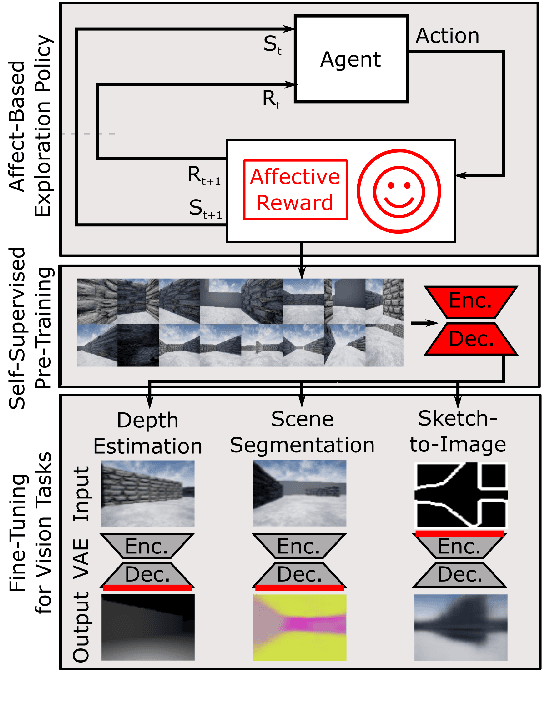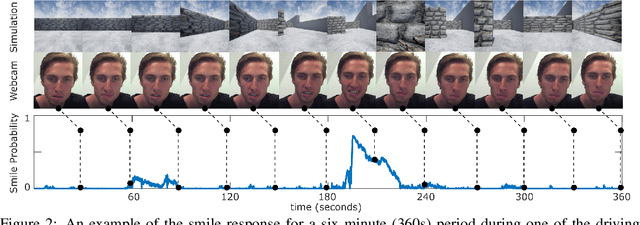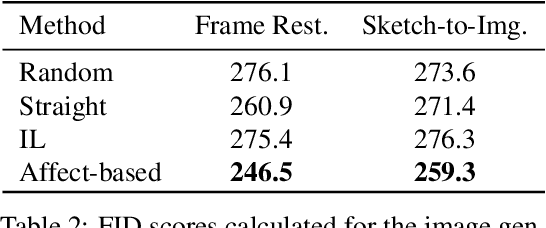Affect-based Intrinsic Rewards for Learning General Representations
Paper and Code
Jan 24, 2020



Positive affect has been linked to increased interest, curiosity and satisfaction in human learning. In reinforcement learning extrinsic rewards are often sparse and difficult to define, intrinsically motivated learning can help address these challenges. We argue that positive affect is an important intrinsic reward that effectively helps drive exploration that is useful in gathering experiences critical to learning general representations. We present a novel approach leveraging a task-independent intrinsic reward function trained on spontaneous smile behavior that captures positive affect. To evaluate our approach we trained several downstream computer vision tasks on data collected with our policy and several baseline methods. We show that the policy based on intrinsic affective rewards successfully increases the duration of episodes, area explored and reduces collisions. The impact is increased speed of learning for several downstream computer vision tasks.
 Add to Chrome
Add to Chrome Add to Firefox
Add to Firefox Add to Edge
Add to Edge